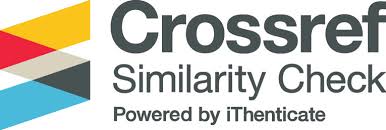Antiparkinson Activity Of Rosella Extract (Hibiscus Sabbdariffa L.) In White Male (Rattus Norvegicus) Sprague Dawley Rats Induced By Haloperidol
Abstract
Parkinson's disease is a disease caused by decreased dopamine levels in pars compacta substantia nigra. Dopamine is closely related to antioxidants, because antioxidants can reduce free radicals that damage dopamine-producing cells. Rosella is one plant that has antioxidant content of flavonoids, saponins, and alkaloids. The purpose of this study was to determine the effect of roselle extract on the decrease of symptoms of Parkinson's disease.
This research uses Sprague dawley rodents as 35 rats, divided into 7 groups. Group I (healthy control) was given aquadestillata po, group II (negative control) was given CMC-Na 0.5% po, group III (positive control I) was given levodopa 27 mg / kgbw po, group IV (positive control II) E 180 IU / kgbw rat po Groups V, VI, and VII were given 150 consecutive doses of rosella; 300; 600 mg / kgbw p.o. The whole group was induced with haloperidol at the 45th minute after treatment except in group I (healthy control). Then tested with a catalepsy bar test, recorded the latency time expressed in the score and rota test rod, recorded time latency in seconds on days 0, 4, 7, 11, and 14.
The results showed that roselle extract gave antiparkinson effect on white rat of the haloperidol-induced Sprague dawley rod. The effective dose of rosella in reducing Parkinson's symptoms is 300 mg / kgbw













